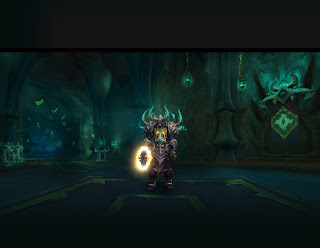Search This Blog
This will be about my MMO Adventures. Its also going to be about my thoughts and opinions on lots of other topics. You may not like everything i have to say, we may have to agree to disagree and move on.
Featured post
- Get link
- X
- Other Apps
Angels To Aliens
From Angels to Aliens: How Ancient Beliefs Morph into Modern Myths
Across various cultures and religions, the idea of winged celestial beings interfacing with humans has been a persistent theme. These beings, often referred to as angels, have served as messengers, protectors, and even figures of divine judgment. However, in the modern age, the concept of angels has undergone a fascinating transformation, blurring the line between the sacred and the extraterrestrial.
The Shift from Angels to Aliens:
Several factors have contributed to this shift in perception:
- The rise of science and technology: As scientific advancements expand our understanding of the universe, the possibility of extraterrestrial life becomes increasingly plausible. This shift in perspective makes the existence of aliens, beings from beyond our planet, a more natural explanation for some of the phenomena previously attributed to angels.
- Pop culture influence: Science fiction and fantasy genres have heavily influenced popular culture, portraying aliens as diverse and sometimes even benevolent beings. This exposure has made the concept of aliens more familiar and relatable, potentially eroding the mystique and awe surrounding angels.
- Secularization: In an increasingly secular world, religious beliefs are losing their grip on public consciousness. This decline in religious affiliation creates an opportunity for other explanations to fill the void, with aliens becoming a secular alternative to angels.
The Blurring of Lines:
This transformation has resulted in a merging of the two concepts, with some modern depictions of aliens possessing angelic qualities. For instance, the benevolent alien visitors in films like "E.T. the Extra-Terrestrial" or "Arrival" exhibit traits traditionally associated with angels, such as wisdom, compassion, and a desire to guide humanity towards a better future.
Conversely, some modern interpretations of angels depict them as beings of immense power and advanced technology, blurring the line between them and extraterrestrials. This is evident in works like the "Neon Genesis Evangelion" anime series, where angels are portrayed as colossal, mechanical entities.
Is This a Loss or a Modernization?
The transformation of angels into aliens can be viewed from various perspectives:
- Loss of tradition: Some individuals may view this shift as a loss of tradition and a decline in the reverence for religious beliefs. They might argue that replacing angels with aliens dilutes the significance of these figures and diminishes their spiritual impact.
- Modernization of mythology: Others may see this change as a natural evolution of mythology, reflecting the changing cultural and scientific landscape. This perspective emphasizes the adaptability of stories and their ability to resonate with contemporary audiences.
- Exploration of new themes: The merging of angels and aliens opens up new avenues for creative expression. This allows for the exploration of complex themes like faith, technology, and the nature of existence through a hybrid lens.
The Future of Angels and Aliens:
Ultimately, the future of angels and aliens in our cultural imagination remains open-ended. These two concepts may continue to evolve and intertwine, reflecting our evolving understanding of the universe and our place within it. Whether we view them as sacred messengers or celestial neighbors, these beings continue to spark our curiosity and inspire our imagination.
Questions for Reflection:
- Do you believe the merging of angel and alien concepts is a positive or negative development?
- How do you think this transformation will impact future generations' understanding of these figures?
- What other mythological beings might undergo similar transformations in the future?
Conclusion:
The journey from angels to aliens reflects the dynamic nature of our beliefs and the ever-evolving fabric of human mythology. Whether viewed with nostalgia or excitement, this metamorphosis serves as a reminder of the power of stories to adapt and resonate across generations.
Popular Posts
Decoding the Digital Darkness: Demystifying Cyber Attacks
- Get link
- X
- Other Apps



Comments